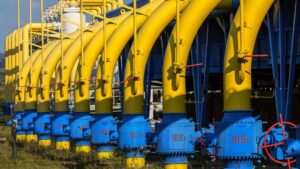
European Commissioner for Energy Kadri Simson says the European Union is ready to completely stop the transit of Russian gas through the Ukrainian gas transportation system after the expiration of the current contract in December this year.
“When I spoke with my colleagues in Ukraine, I made it clear that we are preparing for a situation where the transit agreement between Ukraine and Russia will expire by the end of this December. We have found alternative supply routes, and the Member States or their companies that are still receiving gas from Russia have in fact been granted two additional years compared to other companies that Russia has decided to stop supplying to in 2022,” the European Commissioner said at a press conference in Brussels on Wednesday.
At the same time, Simson stated that Ukraine’s gas transportation infrastructure is also part of the EU’s infrastructure, as part of the European gas is stored in Ukraine’s storage facilities, “which provide us with additional capacity.”
“Ukraine is also a gas producer, so we have to make sure that their infrastructure still has value. But my message is very clear: there is no need to look for any new ways to continue trading with Gazprom. Alternative supplies are available, and we are engaging with affected member states to show them that alternative routes will deliver the volumes they need,” she elaborated.
Simson also referred to the words of Ukrainian President Volodymyr Zelenskyy, who said in late August that “Ukraine is not interested in extending the transit contract with Russia, and that European companies have the right to use Ukrainian infrastructure.”
According to the European Commissioner, her “main mission is to encourage companies that are still receiving Russian pipeline gas because they had contracts signed before the war to choose more predictable alternatives.”
Simson also cited figures showing that the share of Russian gas in EU imports fell from 45% in 2021 to 18% by June 2024, while imports from reliable partners such as Norway and the United States increased. In addition, the EU reduced gas demand by 138 billion cubic meters between August 2022 and May 2024.
“The EU reached its 90% winter gas storage target on August 19, 2024, well ahead of the November 1 deadline, and energy prices are more stable and remain well below the peak levels of the 2022 energy crisis,” she elaborated.
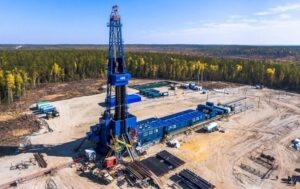
In January-August 2024, Ukrgasvydobuvannya JSC (UGV) increased commercial gas production by 7.2% compared to the same period last year – up to 9.26 billion cubic meters, the company reported on its Facebook page.
During this period, UGV completed drilling 62 wells, of which 52 were put into operation. Of these, 23 have an initial daily flow rate of more than 100 thousand cubic meters.
“We continue to actively drill wells, introduce new technologies, explore new fields – we do everything to increase gas production every day. The cubic meters of gas and oil produced make Ukraine more stable and provide a reliable rear for our soldiers,” said Serhiy Lahno, Chairman of Ukrgasvydobuvannya.
As reported, in 2023, the company produced 13.224 bcm of commercial gas, which is 0.679 bcm more than in 2022.
“In 2023, Ukrgasvydobuvannya launched 86 new wells, 24 of which had an initial flow rate of more than 100 thousand cubic meters.
NJSC Naftogaz of Ukraine owns 100% of Ukrgasvydobuvannya shares.
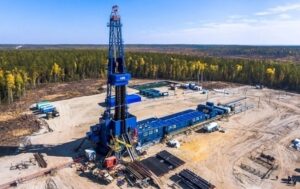
Ukrgasvydobuvannya JSC has commissioned a new well with a flow rate of 107 thousand cubic meters of gas per day, the company reported on Facebook.
The appraisal and production well with a depth of 3715 meters was drilled by the Shebelynka drilling department at the old gas condensate field, which has been developed since 1978. Despite this, the field has significant residual reserves of more than 0.9 billion cubic meters of gas.
“This well has achieved a high flow rate due to the stimulation measures taken, including three stages of hydraulic fracturing. The well was completed using a coiled tubing unit,” said Serhiy Lagno, Head of UGV.
As reported, in 2023, Ukrgasvydobuvannya launched 86 new wells, 24 of which had an initial flow rate of more than 100 thousand cubic meters, and in January-May 2024, 36 new gas wells, 11 of which are highly productive.
In 2022, UGV produced 12.5 billion cubic meters of natural gas (commercial), which is 3% less than in 2021. In 2023, the company produced 13.224 bcm of commercial gas, which is 0.679 bcm more than in 2022.
“In January-June 2024, Ukrgasvydobuvannya increased natural gas (commercial) production by 8.8% compared to the same period in 2023 – up to 6.913 bcm.
NJSC Naftogaz of Ukraine owns 100% of Ukrgasvydobuvannya shares.
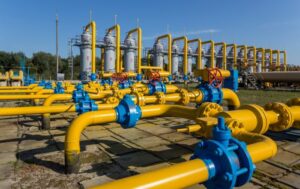
“In January-July 2024, the Ukrainian Gas TSO purchased 128.1 million cubic meters at the Ukrainian Energy Exchange (UEEX), the company’s press service reports.
According to it, the operator concluded 82 agreements with 18 sellers, in particular, in July, GTSOU bought 29.9 million cubic meters at the UEEX, concluding 18 contracts with 10 sellers.
“The operator is interested in expanding the range of counterparties and building long-term mutually beneficial relations with the market. The company plans to actively offer participants a full list of procurement products, in particular to non-resident participants with the delivery of “border of Ukraine” and with the delivery of UGS “customs warehouse”,” the statement said.
GTSOU provides natural gas transportation to consumers in Ukraine and the European Union.
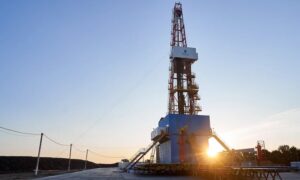
Ukrgasvydobuvannya JSC (UGV), a part of Naftogaz Group, has commissioned a new high-performance well with a daily production rate of 274 thousand cubic meters of gas.
As reported on the group’s website on Tuesday, the well’s peculiarity is that the planned bottom hole is located directly under a settlement.
“The commissioning of the new well increased daily gas production at the field by 17%. The next well is next in line, which will be put into operation in August this year,” said Oleksiy Chernyshov, Chairman of Naftogaz Group.
The idea to drill the well belongs to Andriy Tiro, UkrNDIGas developer, who assessed the field’s production potential and found a remote site for its development. The development team performed a detailed geological and technical study and recommended the well for drilling.
“It was possible to drill a well under the settlement due to modern drilling equipment, advanced technologies and skill of Ukrburgaz specialists, who solved a rather difficult task and drilled a well with a bottom hole reach of more than 1300 m in four months,” said Serhiy Lagno, Chairman of Ukrgasvydobuvannya.
At the same time, the specialists of Ukrgazpromgeofizyka performed complex logging operations and determined the depth of gas-bearing formations in the conditions of a large wellbore angle.
In total, in the first half of 2024, UGV drilled 50 wells, of which 41 were put into operation.
As reported, in 2023, Ukrgasvydobuvannya launched 86 new wells, 24 of which had an initial flow rate of more than 100 thousand cubic meters, and in January-May 2024, 36 new gas wells, 11 of which are highly productive.
In 2022, UGV produced 12.5 billion cubic meters of natural gas (commercial), which is 3% less than in 2021. In 2023, the company produced 13.224 bcm of commercial gas, which is 0.679 bcm more than in 2022.
“In January-June 2024, Ukrgasvydobuvannya increased natural gas (commercial) production by 8.8% compared to the same period in 2023 – up to 6.913 bcm.
NJSC Naftogaz of Ukraine owns 100% of Ukrgasvydobuvannya shares.

In January-June 2024, Ukrgasvydobuvannya JSC increased natural gas production (commercial) by 8.8% compared to the same period in 2023 – up to 6.913 billion cubic meters, the company’s press service said on Wednesday.
According to the company, 165.864 thousand meters were drilled during the reporting period, which is 9.117 thousand meters more than last year’s penetration rate for the first half of 2023.
“Ukrgasvydobuvannya put 41 new wells into operation, 14 of which are high flow rate wells. For example, the daily flow rate of one of the latter exceeds 400 thousand cubic meters. These are very good results that we have achieved thanks to the integrated work of the team,” said the Head of the company Serhiy Lagno.
According to him, UGV also demonstrates good gas production performance at old modernized wells due to the introduction of new technologies.
As reported, Ukrgasvydobuvannya and Ukrnafta produced 7.3 bcm of commercial gas in January-June 2024, which is 8% more than in the same period last year.
In 2022, UGV produced 12.5 billion cubic meters of natural gas (commercial), which is 3% less than in 2021. In 2023, the company produced 13.224 bcm of commercial gas, which is 0.679 bcm more than in 2022.
NJSC Naftogaz of Ukraine owns 100% of Ukrgasvydobuvannya shares.